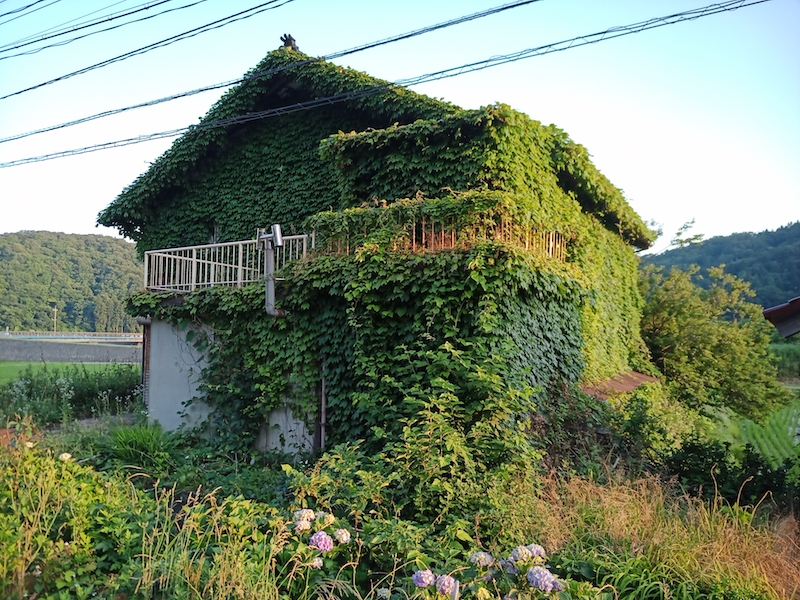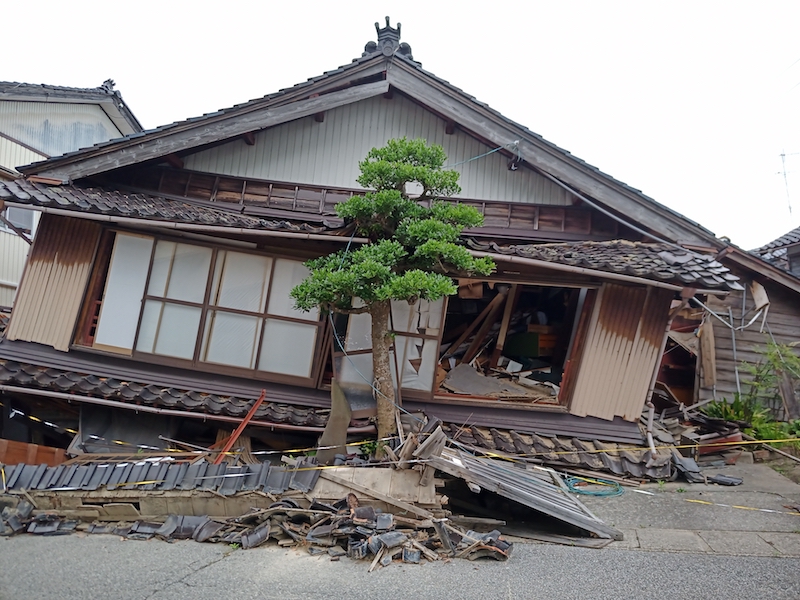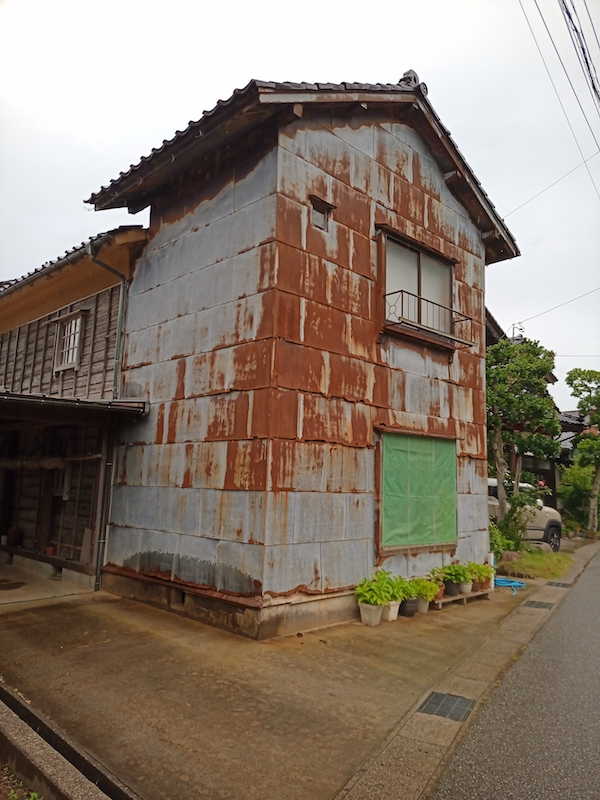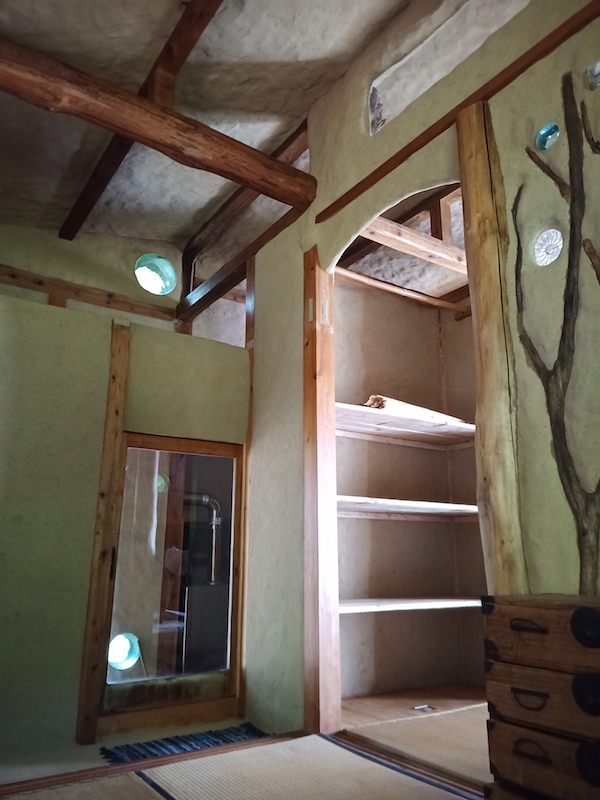House ownership in Japan doesn’t give you that feeling of security I imagine it gives, for example, Northern Europeans. The proverbial “Sword of Damocles” looms over us in so many ways. Ever since buying a house, I have come to truly understand just how uncertain it all is.
First there are the weeds; the ever creeping, green jungle that must be violently chopped back almost weekly during the hot and moist summer season, in a futile effort at stopping it swallowing up everything from houses and roads, to parks and fruit trees.

Then there is the mould and rust that will eat away at all your treasures, as soon as you take your eyes off them. No matter if they are kept inside your built shelter, tools and clothes not regularly oiled or aired will just begin to corrode or grow green hair.
And for a few weeks a year, usually just after rainy season finishes, there are extremely heavy and relentless rainfalls lasting several weeks, often causing whole hillsides to slide, the massive but shallow rooted cedars to topple, and rivers to break free from their confines. Usually these come together with tropical cyclone storms and 200 km/h wind gusts that threaten to carry away any poorly attached roofs.
To top it all off, Japan alone accounts for about 10% of all active volcanoes in the world and sits on a junction of 4 tectonic plates, making it also one of the countries most frequently affected by earthquakes in the world1.

Yes, even the ground itself cannot be relied upon here. Trembling with repressed anger, shivering with held back excitement and occasionally exploding in fits of unrestrained fury, the earth itself can rise up to flatten all that has been built upon it.
Of course this is reflected deeply in the culture. Housing is expected to last no more than 30 years and it’s design clearly demonstrates that there is no time to rest.
Open air vents underneath and huge eaves that swallow up any heat you produce during the chilly winters, it is often colder in the house than outside, while in the scorching summers the many tiny rooms and long corridors often feel hotter.

“You must get out”, the houses seem to be saying. Your futon bed is rolled away daily, it must be or the moisture trapped will make it mould and harden. There is always work to do. Nothing you have gained will keep here.
Even modern jobs, just like traditional farming work, require long hours. 10 and 12 hour days are nothing special, weekends are rarely free and holidays usually no more than a few days in the year.
There is even shame in telling people of taking time off and relaxing, enjoying yourself. No bragging about your great weekend. Better to say how hard you worked. Better to go and volunteer for another job in your spare time.
A local tradition here is for men wearing scary masks to come into family homes to frighten the children not to be lazy2. Don’t relax! Don’t take anything for granted.

And as I watched the recent earthquake lift up my house that I had just spent 3 years renovating, as if it was surfing a wave, I suddenly realised how deep this sense of impermanence must be to the Japanese. Suddenly, the love of Sakura made a lot more sense to me..
Sources:
